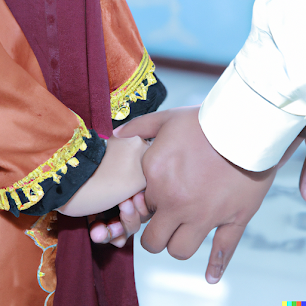Empathy is a profound human quality that transcends cultural, religious, and geographical boundaries. In Islam, empathy holds a central position as one of the core values that fosters compassion, understanding, and unity within the Muslim community and beyond. This blog post explores the concept of empathy in Islam, its significance, and how it is expressed in various aspects of a Muslim's life.
Understanding Empathy in Islam
Empathy in Islam is deeply rooted in the belief that all human beings are interconnected, created by Allah (God) with inherent dignity and worth. The Arabic term for empathy is "tafakkur," which means to contemplate and deeply understand the feelings, experiences, and struggles of others. It involves the ability to place oneself in another's shoes, perceive their emotions, and respond with genuine care and concern.
The Quranic Perspective on Empathy
The Quran, the holy book of Islam, contains numerous verses emphasizing the importance of empathy and compassion towards others. One of the most cited verses is Surah Al-Hujurat (49:13), which states: "O mankind, indeed, We have created you from male and female and made you peoples and tribes that you may know one another. Indeed, the most noble of you in the sight of Allah is the most righteous of you. Indeed, Allah is Knowing and Acquainted."
This verse highlights the divine wisdom behind human diversity and encourages mutual understanding among people from different backgrounds, thereby promoting empathy.
The Prophet Muhammad's (PBUH) Exemplary Empathy
The life of Prophet Muhammad (peace be upon him) serves as a remarkable example of empathy in action. Throughout his teachings and actions, he consistently demonstrated empathy towards all, regardless of their status or beliefs. He displayed compassion towards orphans, the poor, the sick, and even those who opposed him.
An anecdote that showcases his compassion is when a Bedouin man urinated in the mosque, an act that infuriated others. Instead of responding with anger, the Prophet (PBUH) calmly explained that the mosque was a place of worship and purity and gently advised the man. This incident exemplifies how empathy can dissolve hostility and ignorance and foster a sense of understanding and harmony.
Empathy in Social Interactions
In Islamic teachings, empathy is encouraged in everyday interactions. The Prophet Muhammad (PBUH) said, "None of you will have faith until he loves for his brother what he loves for himself." This Hadith emphasizes the golden rule of treating others as we wish to be treated. By empathizing with others, Muslims are encouraged to build strong bonds of brotherhood and sisterhood within their communities.
Empathy in Acts of Charity and Support
Islamic teachings also emphasize the significance of empathy in acts of charity and support. Zakat, one of the Five Pillars of Islam, requires Muslims to give a portion of their wealth to those in need. The practice of giving alms helps believers to empathize with the less fortunate and recognize their responsibility to uplift the vulnerable members of society.
Additionally, Muslims are encouraged to visit the sick, console the bereaved, and provide assistance to those facing hardships. These acts are rooted in empathy and reflect the belief that by alleviating the suffering of others, one earns the pleasure of Allah and strengthens the community.
Empathy as a Catalyst for Peace and Unity
In today's interconnected world, empathy is more critical than ever in bridging divides and promoting peace. By embracing empathy, Muslims can break down stereotypes and misconceptions that surround their faith, paving the way for interfaith dialogue and understanding.
Empathy in Islam goes beyond mere understanding; it is an active and compassionate response to the joys and struggles of others. By cultivating empathy, Muslims can enrich their relationships, strengthen their communities, and contribute to a more harmonious global society. In a world often marked by strife and division, the Islamic concept of empathy offers a powerful antidote – one that promotes unity, compassion, and love for all of humanity.

No comments:
Post a Comment